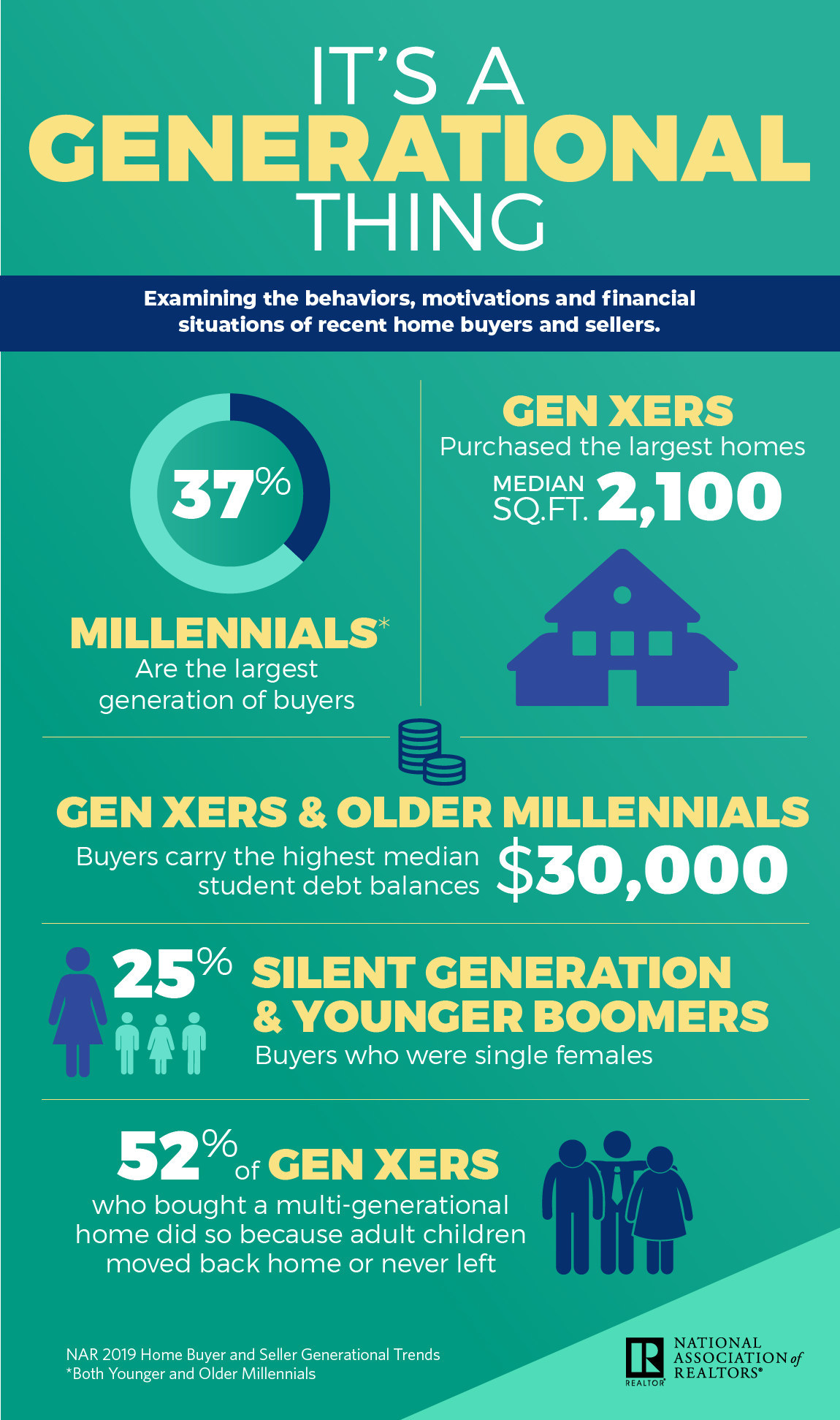One in six Gen Xers purchased a multi-generational home, overtaking younger boomers as the generation most likely to do so.
Fully 52 percent of those buyers did so because their adult children have either moved back or never left home, according to the National Association of Realtors' 2019 Home Buyer and Seller Generational Trends study, which evaluates the generational differences of recent homebuyers and sellers.
The report also found that older millennials who bought a multi-generational home, at 9 percent, were most likely to do so in order to take care of aging parents (33 percent), or to spend more time with those parents (30 percent).
[adbutler zone_id="326314"]
[adbutler zone_id="326316"]
"The high cost of rent and lack of affordable housing inventory is sending adult children back to their parents' homes either out of necessity or an attempt to save money," says Lawrence Yun, NAR’s chief economist. "While these multi-generational homes may not be what a majority of Americans expect out of homeownership, this method allows younger potential buyers the opportunity to gain their financial footing and transition into homeownership. In fact, younger millennials are the most likely to move directly out of their parents' homes into homeownership, circumventing renting altogether."
[caption id="attachment_11431" align="alignleft" width="309"] House Buying Trends[/caption]
House Buying Trends[/caption]
Millennials as a whole accounted for 37 percent of all buyers, making them the most active generation of buyers for the sixth consecutive year. In fact, 2019 is the first year the report separated younger and older millennials, accounting for 11 and 26 percent of buyers respectively. This separation was deemed necessary as younger millennials now account for a larger buying share than the silent generation (7 percent). Gen X buyers were the second largest group of buyers (24 percent), followed by younger boomers (18 percent) and older boomers (14 percent).
Dividing millennials into younger and older cohorts highlights the disparities between the two age groups and paints a picture of older millennials that is much closer to Gen Xers and younger boomers. Older millennials have a median household income of $101,200 and purchase homes with a median price of $274,000, comparable to Gen Xers ($111,100 income, $277,800 median home price) and younger boomers ($102,300, $251,100 respectively).
Yun says this is to be expected as millennials continue to age and advance through various stages of their lives and careers. "Older millennials are now entering the prime earning stages of their careers, and the size and costs of homes they purchase reflect this. Their choices are falling more in line with their Gen X and boomer counterparts."
Younger millennials, meanwhile, are purchasing the least expensive homes and smallest homes ($177,000 and 1,600 square feet), meaning they face the greatest challenge in finding affordable inventory. They also report a median household income of $71,200.
Downsizing to a smaller home is not common among any of the generations. Sellers over the age of 54 only downsize by a median of 100 to 200 square feet. Gen Xers and boomers who may have been interested in downsizing could have been hindered by a lack of smaller inventory; or may have been impeded by the increase in multi-generational living these generations are reporting to accommodate the needs of adult children and aging parents.










